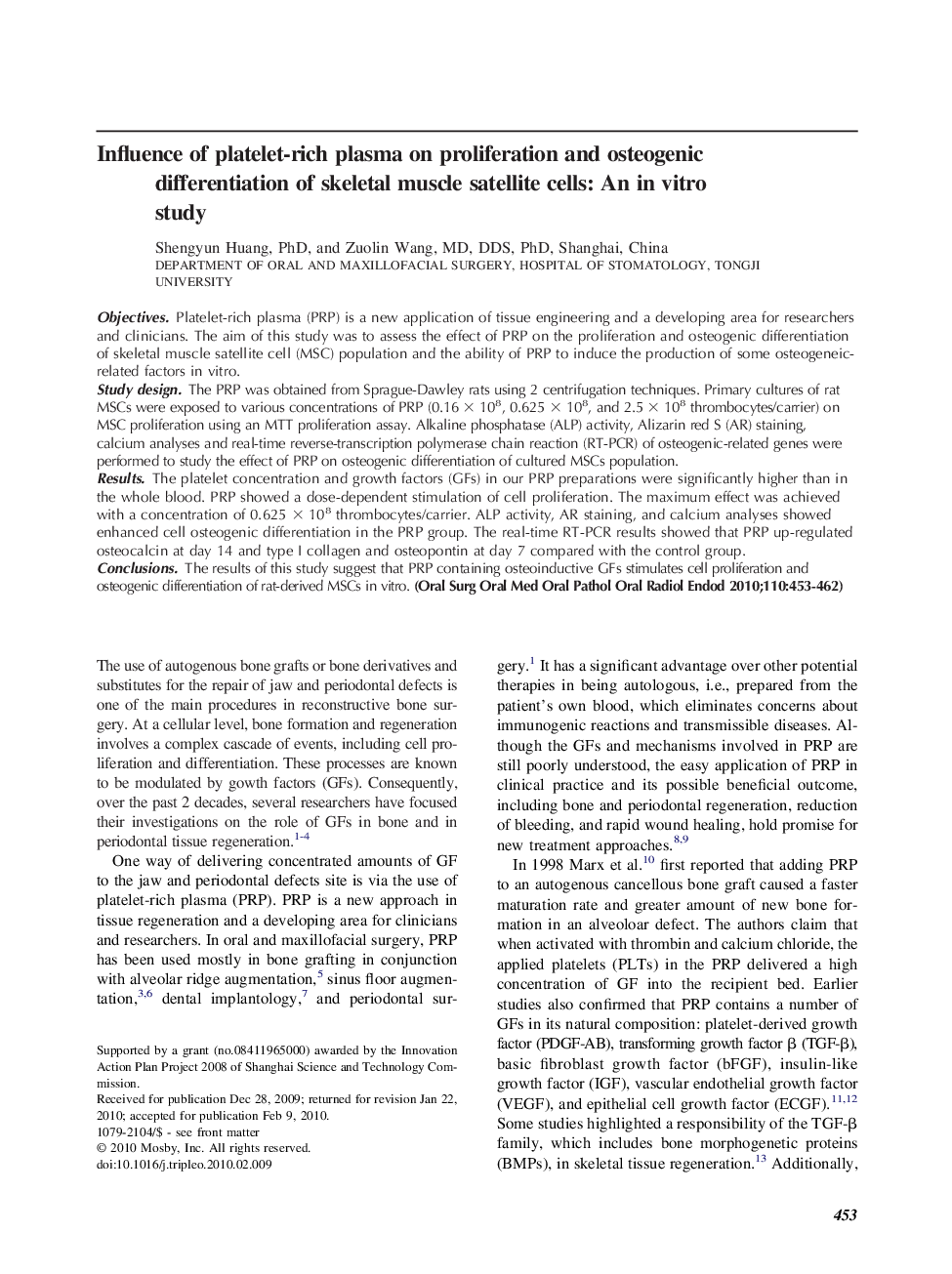| Article ID | Journal | Published Year | Pages | File Type |
|---|---|---|---|---|
| 3167309 | Oral Surgery, Oral Medicine, Oral Pathology, Oral Radiology, and Endodontology | 2010 | 10 Pages |
ObjectivesPlatelet-rich plasma (PRP) is a new application of tissue engineering and a developing area for researchers and clinicians. The aim of this study was to assess the effect of PRP on the proliferation and osteogenic differentiation of skeletal muscle satellite cell (MSC) population and the ability of PRP to induce the production of some osteogeneic-related factors in vitro.Study designThe PRP was obtained from Sprague-Dawley rats using 2 centrifugation techniques. Primary cultures of rat MSCs were exposed to various concentrations of PRP (0.16 × 108, 0.625 × 108, and 2.5 × 108 thrombocytes/carrier) on MSC proliferation using an MTT proliferation assay. Alkaline phosphatase (ALP) activity, Alizarin red S (AR) staining, calcium analyses and real-time reverse-transcription polymerase chain reaction (RT-PCR) of osteogenic-related genes were performed to study the effect of PRP on osteogenic differentiation of cultured MSCs population.ResultsThe platelet concentration and growth factors (GFs) in our PRP preparations were significantly higher than in the whole blood. PRP showed a dose-dependent stimulation of cell proliferation. The maximum effect was achieved with a concentration of 0.625 × 108 thrombocytes/carrier. ALP activity, AR staining, and calcium analyses showed enhanced cell osteogenic differentiation in the PRP group. The real-time RT-PCR results showed that PRP up-regulated osteocalcin at day 14 and type I collagen and osteopontin at day 7 compared with the control group.ConclusionsThe results of this study suggest that PRP containing osteoinductive GFs stimulates cell proliferation and osteogenic differentiation of rat-derived MSCs in vitro.
